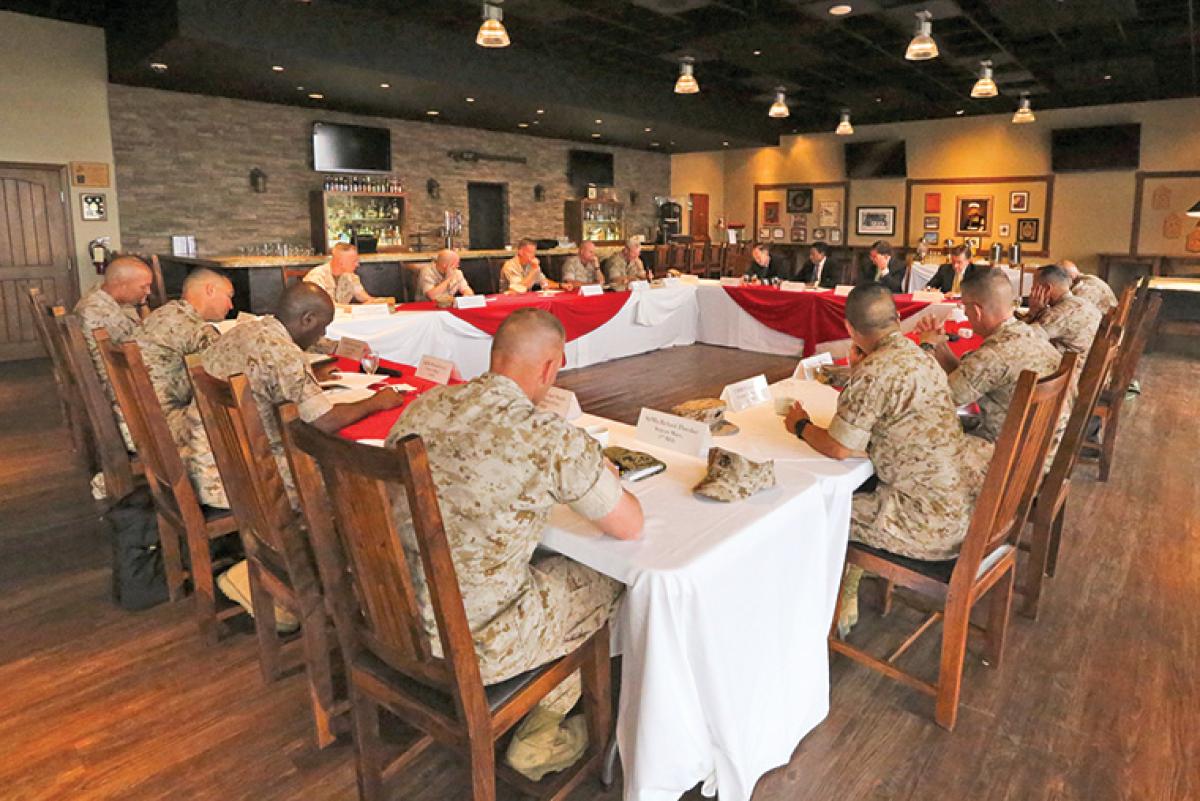Proceedings has long been an outlet for presenting novel ideas and challenging the status quo. The thoughts expressed on its pages have at times created controversy and improved the maritime services. The most pointed articles would seem the most likely to receive high-level attention, but decision-makers rarely engage in the debates that sometimes continue for months online or in the the magazine’s “Comments and Discussion” section. Instead, some of the most provocative and compelling ideas questioning conventional wisdom are simply ignored.
The writers who question the status quo most vigorously are considered contrarians. Too often they may be labeled with a more derogatory synonym of that word: opponent, antagonist, or most harmful of all, adversary.
The Navy’s stated desire for revolutionary ideas, highlighted in January with the establishment of Task Force Innovation, makes contrarians more important than ever. Even when not enacted, their ideas help improve our practices and plans. When contrarian opinions are ignored, it gives the impression only high-level opinions and those carrying the establishment banner matter. It suggests those supporting the status quo are unable to defeat opposing arguments on the merits. When not ignored, they may more offer a better way forward, expose overlooked second- and third-order effects, and help decision-makers develop more powerful arguments.
When opposed, those with the bully pulpit can choose to exercise that position or engage in honest debate. The choice says a lot about the leader. It also says a lot about that leader’s argument.
The government’s tendency to form designated groups to tackle specific issues with large impacts is an understandable strategy. The first priority in such a group’s formation must be broad representation within the membership. The recently concluded Military Compensation and Retirement Modernization Commission (MCRMC) was such an example.
Unfortunately, the people who create these groups often populate them with nominees they are sure will (or anticipate will) agree with them. Given a choice, they certainly are not keen to appoint members who might be contrarian.
The MCRMC was designed to be apolitical and made up of members with broad expertise on military manpower. The Fiscal Year 2013 National Defense Authorization Act (NDAA), amended by the FY14 NDAA, directed the commission to “be composed of nine members,” including “members with significant expertise” in very specific areas. One of those areas of “significant expertise” listed was “service as an enlisted member of the uniformed services.” Of the nine appointed commissioners, public biographies show 174 years of combined military service. Sadly, those years of experience did not include any enlisted service.
The NDAA direction to consider enlisted representation was appreciated by the men and women who account for the bulk of our military. Unfortunately, those responsible for nominating commissioners failed to uphold that promise. It also appears the nominating officials—the President, the majority and minority leaders of the Senate, the Speaker of the House of Representatives, and the minority leader of the House of Representatives—failed to locate a single suitable nominee with “experience as a spouse of a member of the uniformed Services.”
As a result, two of the largest groups impacted by changes to military compensation were excluded from commission membership—in direct contravention with the intent of the NDAA. And it’s not as if there are no former enlisted members or spouses with experience in the other desired areas of expertise. Was a former enlisted sailor, soldier, airman, or Marine considered? Was one of their spouses, which might have added a woman to the commission, another key group lacking representation?
Those appointed to the commission are fine men with many significant accomplishments, a Medal of Honor among them. But which of them was able to speak legitimately for the enlisted community, spouses and families, and women? The curious absence of those representatives signals disrespect for their abilities and opinions and calls into question the legitimacy of the commission’s report. Perhaps these groups were intentionally ignored, assumed most likely to oppose changes to military compensation. That couldn’t be it. Could it?
Commissions and task forces outsource decision-making to potential scapegoats unaccountable to anyone except the person who appointed them. In forming these groups or considering debate, we can ignore the contrarians—but we do so at our own peril.



